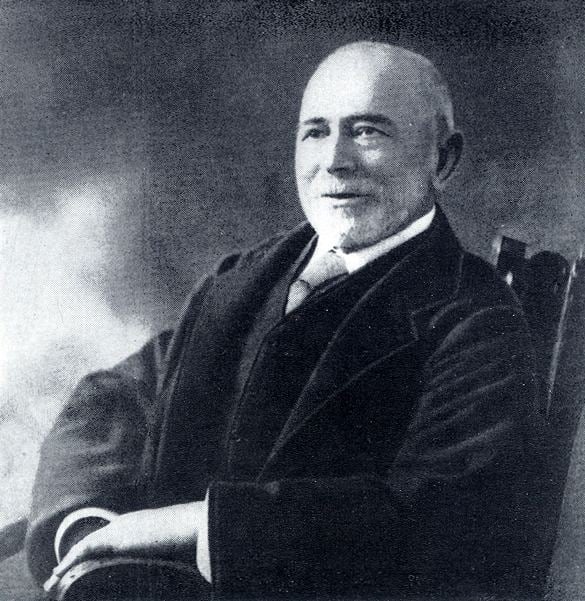
Featured Item

Jews and booze: a sobering story
Published
8 months agoon
By
Irwin ManoimAs a blonde shiksa of my acquaintance put it, the problem with Jewish functions is that there’s too much fish and not enough booze. This line of thinking was once taken up by the great German philosopher Immanuel Kant, who took time to ponder why Jews drank so little, concluding that it was because their weak political position required them always to be on their guard.
Kant was perhaps unacquainted with Purim, not to mention Chassidic Jews, but nonetheless there persisted in Christian circles an understanding that you could never offer a Jew a tipple. And that helps explain why in the early medieval period, when distilling technologies had much improved and booze offered the best return on investment for farm produce, the Polish nobility who owned every last inch of the glorious Polish Empire, turned to that despised group, the Jews, to run their liquor businesses: the Jews alone could be trusted not to get sozzled on the product.
In no time, an uneasy relationship developed: Jews were inspanned to make the booze, deliver the booze, and sell the booze, with the bulk of the profit kicked back to the nobles. The target market was the surly peasants, who having broken their backs producing grain, fruit, et al, were now being sold back in the form of head-spinningly strong vodkas, schnapps, gins, and the like.
Surveys suggest that around the 17th century, between a third and 85% of Jews in any given district of the Polish Empire – and Lithuania was one of those districts – were in the liquor business, running the many country inns, which traded in straw beds, flagons of warmish plonk, and general inebriated gaiety.
What the nobles liked about booze, apart from the money, is that it kept the peasants amiable and distracted from greater threats like periodic uprisings against their oppressive masters. But in due course, alcoholism became rampant, hungover peasants were unable to get up and plough fields the next morning, and the men ran up tabs at the bar they could not repay.
The inevitable happened: the Jews were blamed. Taverners and their liquor were a primary target of anti-Jewish rioting of the period. The story gets extremely complicated, but in short, the Jews were abruptly banned from selling booze. Since it was their only livelihood and they had to feed many mouths the next day, they carried on selling illegally, hiding behind “Shabbos goys” who fronted the businesses.
At which point, we switch to South Africa, where the story plays out all over again. President Paul Kruger, later famous for almost winning the Boer War, had to satisfy the whims of thousands of surly farmers who, what with Rinderpest, drought, and ungrateful black tribes – were having trouble selling off their agricultural products.
Kruger was persuaded to provide a thirty-year concession to a clutch of non-drinking Jews to establish a large booze factory. with the sole right to sell liquor in the Transvaal. These Jews, one of them, Sammy Marks, you may have heard of, spent far too much money on their factory and discovered there were far too few customers. They were on their way to bankruptcy when a miracle occurred: 50km away, gold was discovered.
Up sprang a town called Johannesburg, to which flocked tens of thousands of adventurers, shysters, and actual miners, who shared only one trait: a thirst for booze. The Marks factory sold proof spirits to middlemen, favouring of course their landsmen, who watered down and flavoured that up into concoctions drinkable or unspeakable, which were then sold on to the bars, many of them run by their mishpocha and machatonisters. In no time, there were 75 bars in a town no larger than a few blocks in extent. There were also two shuls and a modest handful of churches. A quarter of the bars were owned by Jews.
In the early days, the target market was entirely white, but as the mines grew bigger and deeper, black miners outnumbered white. And for reasons identical to the Polish nobility, the mine magnates favoured boozing up the black miners, which was thought to keep them amiable and non-threatening. Selling booze to black miners became a huge industry. The mine magnates were happy, the mine managers, who helped themselves to kickbacks, were happy, and Kruger and his farmers gave thanks to Jesus.
Then alcoholism became rampant, drunken black miners were accused of harassing white ladies, fights broke out on the mines, and a survey warned that 15% of the miners couldn’t get out of bed to work on any given day. All sales of booze to blacks were promptly banned. The Marks booze factory went from huge profits to huge losses and half the bars were forced to close.
Some of those who survived did so by peddling booze illegally to black miners. Secret underground bars evolved, reached only by tunnels. Criminal gangs moved in. It was like the Prohibition in the United States, as seen in Hollywood movies, just 25 years earlier.
Public indignation broke out, Christian ministers and ladies’ organisations at the fore, urged on by mining interests, which had flipped 180 degrees on this urgent issue, and also by the town’s retailers, many of them Jewish, who long hated the way blacks wasted their money on booze instead of spending it in their concession stores.
As historian Milton Shain has pointed out, the public indignation took a blatantly antisemitic form, with community leaders and newspapers filled with stories about Jewish rogues, all of them filthy “but the women even filthier than the men”, and accused variously of bribery, kidnapping, and murder, at least some of which may even have been true.
How did this all end? With the Boer War. When the Boer army entered Johannesburg, thousands scrambled for the trains; thousands more when the British army replaced them. The Sammy Marks distillery was closed down. End of story? Not quite. A new generation arrived. One Solly Kramer, a tobacconist, ventured into liquor, decades later there were 160 stores emblazoned with his name. One Benny Goldberg opened the biggest liquor hypermarket in the world.
A long story. I told some of that in greater detail at Limmud a fortnight ago. Afterwards, half a dozen people came up to tell me of their ancestral roots in the booze business. The grandchildren of barmen and bootleggers were now lawyers, accountants, and paediatricians. I will be telling the story again at 18:00 on Sunday 15 October at the Rabbi Cyril Harris Centre.
- Irwin Manoim is a former journalist and co-founder of the Mail & Guardian. He’s now senior scholar at the Kaplan Centre for Jewish Studies at the University of Cape Town, researching Jewish South African history.
Disclaimer: The SA Jewish Report chose to keep the word, “shiksa” in the introduction to this article because though the word is sometimes used in a derogatory manner, we don’t believe it’s offensive in this instance and it adds to the satirical nature of the piece.











Ludwig de Klerk
Sep 23, 2023 at 1:15 pm
Just a few points mr. Manoim.
There was no Boer army that invaded Johannesburg. The leaders of the Rand Revolt were a bunch of schemers who failed to take over the Transvaal parliament in an attempt that would have placed control of the Transvaal goldfields in their greedy hands. business went back to normal after a few weeks.The British action against Transvaal was totally uncalled for, it was what Benjamin Franklin termed an “unjust war”.
Secondly, the majority of the black underground mine workers were contractors from neighbouring countries who were closely supervised. Local blacks worked in administration, the so-called “mabalans” (writers). they lived with their families in houses on mine property. I grew up on a gold mine and lived there for the first 28 years of my life. Yes there were pubs and clubs in the town but no more than any other city. The City grew at an amazing rate, certainly more the a few blocks. There were more than 3 million trees planted in the first 15 years, which is why Johannesburg has the reputation of being the largest man made forest in the world. You cannot plant that many trees in just a few blocks.
Regards.